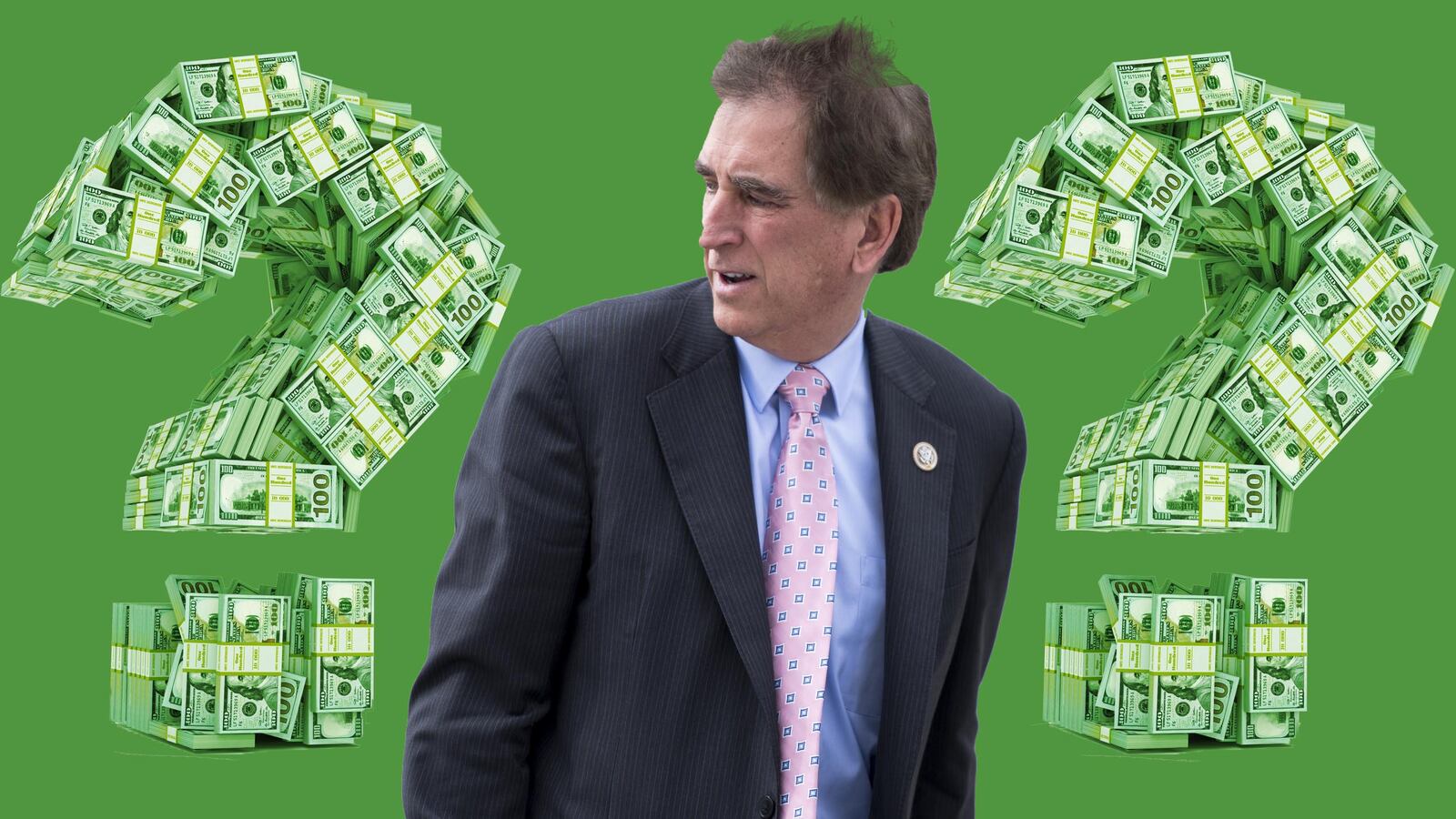A mysterious political group spent hundreds of thousands of dollars on behalf of a Republican Senate candidate without informing federal election regulators that it had ever spent a single cent.
Ohio First PAC finally reported nearly half a million dollars in expenditures on behalf of Rep. Jim Renacci’s Senate campaign on Friday. But it continued to keep key elements of its operation cloaked in secrecy. The filings it submitted to the FEC do not reveal the identities of the group’s donors, just the money it spent.
In a campaign finance system that is often defined by its opaqueness, Ohio First PAC’s operations stand out for their intense secrecy.
Ohio First jumped into the state’s Republican Senate primary more than a month before voters went to the polls in early May. Its first expenditure came on April 1, when it began paying the Republican firm Majority Strategies to produce and place ads supporting Renacci’s candidacy. The group spent more than $300,000 over the first three weeks of April, the period for which it was required to file a pre-primary disclosure report with the FEC. It spent another $160,000 supporting Renacci by early May.
But Ohio First didn’t file that pre-primary report, which was due on April 26. Neither did it file any disclosures of those independent expenditures, which were due within 24 hours of the expenditures being made.
Instead, it waited to June 29 to alert regulators to its campaign activities.
“The Super PAC is going to have to pay an administrative fine for the late filing of the Pre-Primary Report and each of the late 24-hour reports would be a separate FECA violation,” predicted Brett Kappel, a campaign finance attorney with the firm Ackerman. I would be very surprised if a complaint isn't filed with the FEC.”
More practically, the result of its untimely filings was that Republican voters went to the polls in last month’s primary, which Renacci won, without access to public records about who was spending money attempting to influence their votes.
Voters only now know that a mysterious group was working on Renaccis’ behalf. But they still don’t know who was funding those efforts. Though the belated pre-primary FEC report disclosed more than $300,000 in independent expenditures during the first 18 days of April, it reported no income in that time.
Naturally, the money needed to fund those ad efforts must have come from somewhere. But it appears likely that the PAC’s vendors provided their services on credit, meaning that Ohio First will repay them during a future FEC reporting period. It is also possible that the PAC’s vendors will forgive the debt and effectively provide the services for free, in which case the PAC would retroactively count them as in-kind contributions.
Kappel said that sort of scheme could create its own sort of headaches for Ohio First. “The Super PAC's vendors are playing a dangerous game,” he said in an email. “If a complaint is filed, they will have to show that their extension of credit is normal and usual in the industry. If not it could be construed as an illegal contribution to the Super PAC.”
The strategy deployed by Ohio Firsty has been used by at least one other group to conceal its financial supporters ahead of a key electoral contest. Highway 31, a super PAC supporting Democratic Sen. Doug Jones in an Alabama special election late last year, similarly structured its spending to avoid disclosing the sources of its money. Only after the election was over was it revealed that a handful of prominent Democratic political and interest groups had filled the group’s coffers.
Ohio First, which shares its name with a Renacci campaign slogan, officially formed early this year, according to records filed with the FEC, but its ties to the candidate appear to go back further. Last fall, when Renacci was running for governor, he told the Dayton Daily News that he was “aligned with the Ohio First PAC to advance his agenda, and it has raised…$235,000.”
Ohio’s secretary of state has no record of a political committee by that name active last year.
Renacci withdrew from the governor’s race on January 11 and declared his intention to challenge Democratic Sen. Sherrod Brown instead. He officially entered the race on January 17. Four days later, Ohio First PAC filed its statement of organization with the FEC.
Politico reported at the time that Ohio First was run by Blaise Hazelwood, a Republican consultant with the firm Grassroots Targeting. Neither Hazelwood nor the PAC’s treasurer, Julie Dozier, responded to questions about the group.
Ohio First’s belated disclosures came the same day that the FEC fined a Republican political group for failing to disclose a six-figure Senate ad buy until after the 2016 election.





